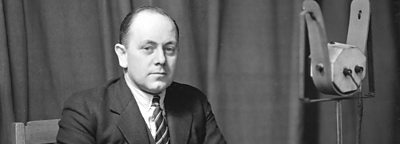The Vernon Bartlett affair was very much a row of its time. Such a furore would be unthinkable today, but in 1933 Bartlett's on-air commentary on a news event caused a considerable stir.
His sin was to add to a straight news report his personal view of events at the League of Nations Disarmament Conference in October 1933. Hitler had pulled out of the conference, and Bartlett observed "I believe the British would have acted in much the same way as Germany if they had been in the same position."
It was the sort of thing he might have written in his reports for the Daily Mail, the Daily Herald, The Times and Reuters in the years before he joined the Βι¶ΉΤΌΕΔ, and it was the sort of expert insight that listeners today would expect from a correspondent - particularly one who had spent ten years as director of the London office of the League of Nations.
The newspapers, which for years had sought to constrain the Βι¶ΉΤΌΕΔ in the field of newsgathering, piled in. The Daily Telegraph said Bartlett had committed a "grave indiscretion", and the Evening Standard said such commentary was the sphere of "responsible members of government", not of "attachés of the Βι¶ΉΤΌΕΔ".
The Prime Minister wrote to the Chairman complaining of one-sidedness and advising that the Βι¶ΉΤΌΕΔ should seek advice before it "put its foot in it".
The upshot was that Bartlett resigned. He felt that, having been in such a glaring spotlight, anything he said in future would be tested for 'neutrality'. He later became an MP, campaigning on a vigorous anti-Hitler platform.
It was not until World War 2 that the Βι¶ΉΤΌΕΔ was recognised as a news organisation in its own right, while the widespread use of correspondents who provide commentary as well as reportage in their specialist fields is a relatively recent development.
